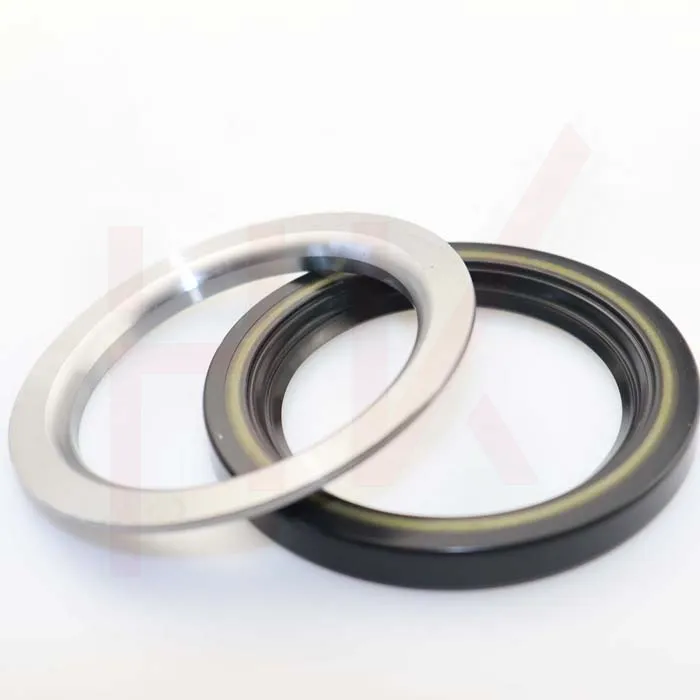Lap . 27, 2024 16:21 Back to list
Mechanical Seal Kit for Efficient Pump and Equipment Maintenance Solutions
Understanding Mechanical Seal Kits A Comprehensive Overview
Mechanical seals play a vital role in ensuring the safe and efficient operation of various machinery, particularly in rotating equipment such as pumps and compressors. They are designed to prevent fluid leaks by maintaining a tight seal between two moving parts. Over time, these seals can wear out due to heat, pressure, chemical exposure, and mechanical stress, necessitating replacement. This is where mechanical seal kits come into play, providing an all-in-one solution for maintenance and repair.
What is a Mechanical Seal Kit?
A mechanical seal kit typically comprises all the necessary components required to replace a mechanical seal in a piece of equipment. These kits are tailored to specific applications and come in various configurations, catering to different sizes and types of seals. Each kit may include the following components
1. Mechanical Seal Components The core of the kit, these parts include the rotating and stationary faces, springs, and elastomeric seals.
2. O-Rings and Gaskets Essential for ensuring proper sealing, these components help fill gaps and prevent leaks.
3. Installation Instructions Many kits come with detailed guidelines on how to install the seals appropriately, ensuring that users can perform the replacement without professional assistance.
4. Lubricating Grease Some kits include a small amount of grease to facilitate the installation of the seal parts, thereby minimizing friction during the assembly process.
Why Use Mechanical Seal Kits?
1. Cost-Effectiveness Purchasing a mechanical seal kit can be more economical than buying individual components separately. Bundling all necessary parts reduces shipping costs and lowers the overall expenditure.
2. Convenience Mechanical seal kits are designed for specific applications, simplifying the selection process. Technicians can quickly find a kit that matches their equipment's requirements, saving time in maintenance and repair activities.
3. Consistency in Quality Kits often contain original manufacturer parts, ensuring that the replacement components meet the same quality and performance standards as the original seals. This consistency is critical for the reliability and longevity of machinery.
4. Comprehensive Solution By providing all necessary components in one package, these kits eliminate the need for multiple purchases from different suppliers, streamlining the maintenance process.
How to Choose the Right Mechanical Seal Kit
mechanical seal kit

When selecting a mechanical seal kit, several factors should be considered to ensure optimal performance and compatibility
1. Equipment Specifications Check the manufacturer's specifications for the equipment, including part numbers and size requirements, to find the correct kit.
2. Seal Type Different applications require specific seal designs, such as single or double seals, so it’s essential to choose a kit that matches the requirements of the application.
3. Material Compatibility Consider the fluids in contact with the seal. The materials used in the kit must be compatible with those fluids, especially in high-temperature or chemically aggressive environments.
4. Manufacturer Reputation Opt for kits from reputable manufacturers. Quality assurance is crucial, as subpar seals can lead to leaks, equipment damage, or costly downtime.
5. Installation Ease Some kits are designed for user-friendly installation, while others may require specialized tools or expertise. Evaluate your team's capability to handle the installation process.
Maintenance and Best Practices
To maximize the lifespan of mechanical seals and the associated kits, following best practices in installation and maintenance is essential
- Cleanliness Ensure that all surfaces are clean and free from debris before installation. Contaminants can compromise the seal's effectiveness. - Correct Installation Techniques Follow the provided guidelines for installation. Misalignment or improper handling can lead to premature seal failure.
- Regular Inspections Schedule regular inspections of the mechanical seals and replace them promptly if wear is detected. Early intervention can prevent more significant issues.
- Keep Spare Kits Ready For critical machinery, maintaining spare mechanical seal kits can prevent prolonged downtime in case of unexpected failures.
Conclusion
Mechanical seal kits are an essential aspect of maintaining equipment integrity and operational efficiency. By understanding your equipment's needs and following best practices, you can ensure that your machinery functions optimally, minimizing leaks and enhancing reliability. Investing time into selecting the right kit and adhering to proper maintenance protocols will ultimately result in reduced operational costs and increased machine lifespan.
-
Understanding Oil Seals and Their Role in Machinery Efficiency
NewsApr.08,2025
-
The Importance of Seals in Agricultural and Hydraulic Systems
NewsApr.08,2025
-
Essential Guide to Seal Kits for Efficient Machinery Maintenance
NewsApr.08,2025
-
Choosing the Right TCV Oil Seal for Your Machinery
NewsApr.08,2025
-
Choosing the Right Hydraulic Oil Seals for Reliable Performance
NewsApr.08,2025
-
A Comprehensive Guide to Oil Seals and Their Applications
NewsApr.08,2025
-
The Importance of High-Quality Oil Seals in Industrial Applications
NewsMar.26,2025
Products categories
















